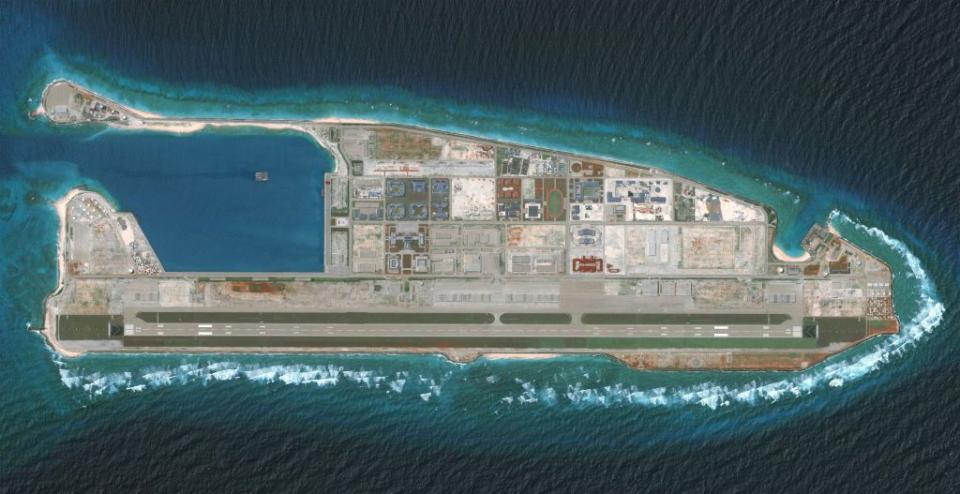A Chinese Military Official Suggests Ramming U.S. Warships in the South China Sea

A Chinese Air Force colonel has suggested ramming U.S. ships sent to challenge Beijing’s control of the South China Sea. Col. Dai Xu made the remarks at an event sponsored by Global Times, published by the Chinese government. Dai also recommended invading Taiwan when the opportunity presented itself, even at the cost of economic growth. The remarks were published in Global Times on December 8, 2018.
During a panel discussion on the South China Sea, “(Dai) said he didn't understand why some people were afraid when Chinese warships intercepted US warships. ‘If the US warships break into Chinese waters again, I suggest that two warships should be sent: one to stop it, and another one to ram it. In our territorial waters, we won't allow U.S. warships to create disturbance.”

China has claimed roughly ninety percent of the South China Sea, including waters and minor terrain features such as atolls and islets, trampling competing claims by smaller countries such as the Philippines, Malaysia, Vietnam, Brunei, Indonesia, Taiwan, and others. Beijing has enlarged many of these smaller features by dredging sand from the sea floor, creating larger islands equipped with radars, guns, missiles, ports capable of handling warships, and military-grade airfields. Chinese forces regularly harass ships and aircraft of other countries entering the South China Sea.
U.S. Forces, including P-8A Poseidon maritime patrol aircraft and guided missile destroyers, have repeatedly ventured near these islands on “freedom of navigation operations,” or FONOPS. FONOPS are designed to assert the right of the U.S. military-and by implication anyone-to sail in waters the U.S. believes are international waters and not controlled by any particular country. The U.S. doesn’t deny that states have control over who enters and leaves their sovereign territory, but it does sometimes have issues with how that territory is defined.

Naturally, U.S. FONOPS in the South China Sea have raised tensions with the Chinese. Chinese military air traffic controllers and warships routinely warn U.S. forces conducting these missions to leave the area immediately. These confrontations on the Chinese end have recently escalated to include laser strikes against U.S. military aircraft and the shadowing of U.S. warships by Chinese warships, including an “unsafe” incident in which the Chinese warship closed to within 45 yards of an American guided missile destroyer.
Dai also seemed hawkish on the matter of Taiwan, to the point of slowing China’s economic progress to achieve forced reunification with Taipei. “Though the economy is the most important aspect of overall development and we should definitely focus on saving it, once the opportunity for reunification comes, why not take it?” Dai asked. “Tensions will accelerate reunification and will only be the beginning of Taiwan's war of liberation. Therefore, we do not have much to fear, so let's just wait and be prepared. Once a strategic opportunity emerges, we should be ready to take over Taiwan.”

An invasion of Taiwan would almost certainly result in economic sanctions imposed on China by the United States and Europe and, given that Taiwan’s security is guaranteed by the United States, even the intervention of U.S. forces if Beijing invades. In other words, what Dai envisions as a China-Taiwan war could become a China-United States war-with all the inherent dangers of two nuclear powers slugging it out with one another.
How much credence should the rest of the world put in Dai’s statements? Dai may be playing to nationalist sentiments at a nationalist publication, but he’s also a senior member of the Chinese military. China’s state media is heavily censored and regulated. Although Dai’s comments may not be policy, but by allowing them to be published the Chinese government is signalling it doesn’t have a problem with them. That these comments are being made in a time of physically dangerous escalation between U.S. and Chinese forces is worrying.
Source: Task & Purpose
('You Might Also Like',)


